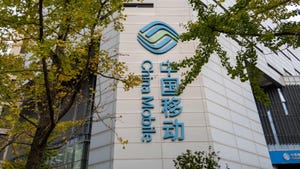Malaysia set to roll out second 5G wholesale network
Malaysia's controversial single wholesale network crosses 80% coverage threshold, triggering moves to set up rival network.

Malaysia is set to go ahead with a second 5G rollout after the initial wholesale network reached a key milestone.
The DNB network that has been under construction since 2021 now covers more than 80% of the populated areas, Communications Minister Fahmi Fadzil said in a press conference this week.
The government last year said that once the 80% threshold was crossed it would move to set up a second wholesale provider.
Fahmi said the government's 5G task force was due to meet Friday with DNB, regulator MCMC and the five 5G telcos. The cabinet will make a decision on the second network within a month, he said.
The government and industry struck a deal to create the second network last year after some operators had refused to cooperate with the wholesale monopoly model, objecting to DNB's high access costs, the lack of redundancy and the limits on their ability to compete.
Under the terms agreed, the five operators – CelcomDigi, Maxis, U Mobile, Telekom Malaysia and YTL – have taken a combined 70% stake in DNB. Each operator has also contributed 233 million Malaysian ringgit (US$50.2 million) as prepayment for services, according to Maxis.
DNB question marks
While it took years of wrangling to agree on the terms of operator's involvement in DNB, it seems discussions on the terms of the second operator have barely begun.
The simplest could be that two or more telcos exit DNB and invest in the new entity – but that would mean unwinding some of the DNB arrangements.
The DNB itself might in any case become a fully telco-owned entity. The Ministry of Finance, which holds 30% as well as a golden share, reportedly has the right to exit the investment after the 80% target is reached.
The company, which was set up by the previous administration, appears to be in a kind of limbo. It has had no CEO since the original appointee, industry veteran Ralph Marshall, departed when his term ended last March. According to the DNB website it has no chairman and just two board members.
In an eyebrow-raising move, DNB has just been placed under the supervision of the new Digital Ministry. By contrast, the incumbent operators are all subject to regulation by the MCMC, a part of the Communications Ministry.
Read more about:
AsiaAbout the Author(s)
You May Also Like












